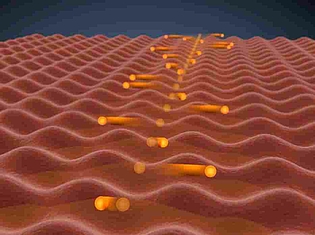News | Monday, 22 June 2015
Unrealized Innovation Potential of Quantum Technologies

Image: Immanuel Bloch
Quantum technology is a relatively young field of research and development that has great innovation potential. Prospective applications include, for example, quantum computers, cryptography or high-precision GPS (Global Positioning System). If the scientifically and economically promising prospects for this area of research are to be realized, it must be more robustly interlinked with basic research, development and utilization approaches.
The German National Academy of Sciences Leopoldina, acatech – German Academy of Science and Engineering, and The Union of the German Academies of Sciences and Humanities have today published a joint statement entitled “Prospects for Quantum Technology” in which the options for a better transfer of research findings into useful applications are identified. Unfortunately such transfers are currently a rare occurrence.
The statement’s authors see the underlying structure of research as one important determinant for this predicament. An interdisciplinary network dealing with the individual aspects of quantum technology has not been formed and regional clusters have failed to materialize. Thus other sectors, including industry, are not made aware of the innovation potential of the field. The scientists therefore advocate the pooling of scientific expertise into regional support centres and the creation of an environment that enables technological spin-off enterprises.
The statement is also designed to make the new quantum technologies understandable enough so laymen can gain an overview of the future prospects of this research area. With this in mind, the statement describes the basic principles of quantum technology as well as current approaches to research and utilization. The publication also addresses the possible risks associated with quantum technologies and ways to evaluate them.
